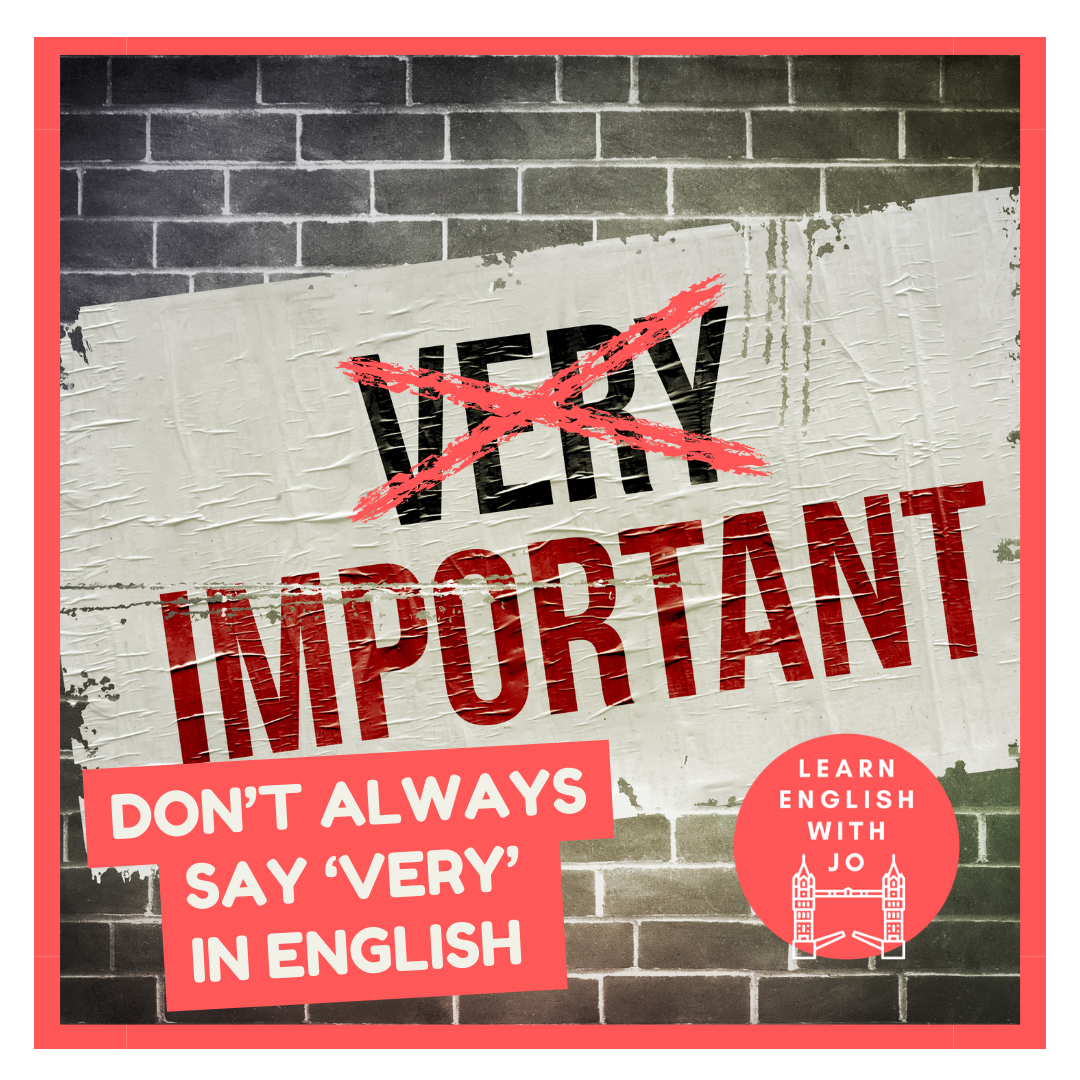Alternative ways to say ‘very' in spoken English
When it comes to expressing intensity or emphasising a point in English, the word ‘very’ often takes centre stage. However, using the same word repeatedly can make your speech seem a bit monotonous and less engaging. Exploring alternatives to ‘very’ isn’t just about diversifying your vocabulary but also about enhancing your communication skills and sounding more natural and comfortable in the language.
I’m not suggesting for one minute that you need to learn all these synonyms and immediately introduce them all into your English conversations, but see which ones you like and try them out.
Really
"Really" is a versatile alternative to "very" that conveys a sense of genuineness and sincerity. For instance, instead of saying "very happy," you can say "really happy" to express a stronger sentiment.
Incredibly
Adding "incredibly" to your vocabulary allows you to intensify your descriptions. Rather than just saying "very beautiful," you can say "incredibly beautiful" to emphasise the astonishing nature of something.
Bloody
This informal term, commonly used in British English, adds a touch of emphasis and intensity. For example, instead of "very tired," you could say "bloody tired" to convey a stronger sense of exhaustion.
Insanely
"Insanely" is a powerful alternative that adds an element of madness or extremity to your expression. For instance, instead of saying "very fast," you can say "insanely fast" to highlight the speed of something.
Ridiculously
Using "ridiculously" introduces an element of exaggeration, allowing you to convey a strong sense of disbelief or surprise. Replace "very expensive" with "ridiculously expensive" to emphasise the exorbitant cost.
Extremely
"Extremely" is a classic alternative that denotes a high degree of intensity. Instead of saying "very good," you can say "extremely good" to convey a more powerful positive assessment.
Unbelievably
"Unbelievably" conveys a sense of awe or astonishment. Swap "very difficult" for "unbelievably difficult" to highlight the extraordinary level of challenge.
Why Explore Alternatives?
Nuanced Expression: Using a variety of alternatives allows you to express yourself more precisely, capturing subtle differences in meaning that "very" may not convey.
Richer Vocabulary: Learning and incorporating alternatives enriches your vocabulary, making your language use more sophisticated and varied.
Improved Communication: Experimenting with different intensifiers helps you communicate more effectively, allowing your audience to better understand the level of emphasis or intensity you intend to convey.
Cultural Awareness: Some alternatives, like "bloody," are region-specific and can provide insight into cultural nuances, helping you connect with native speakers on a deeper level.

